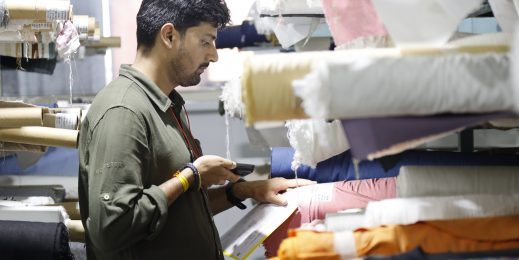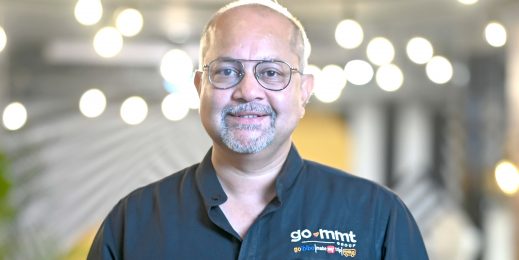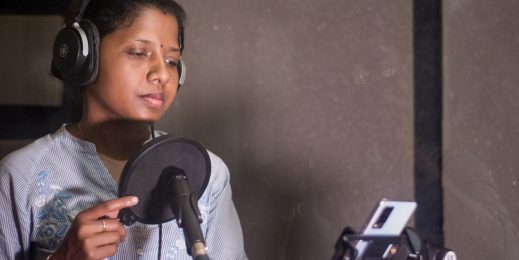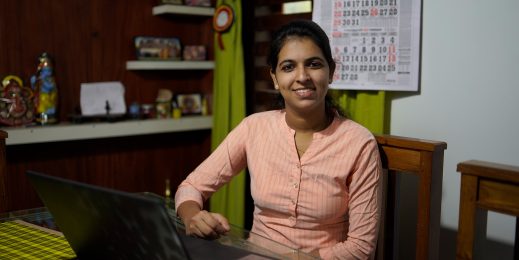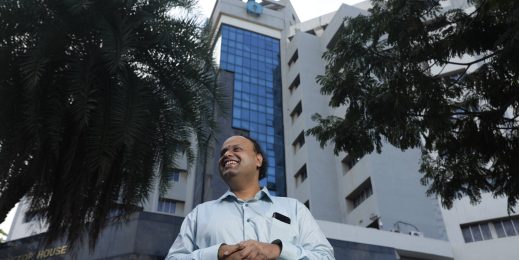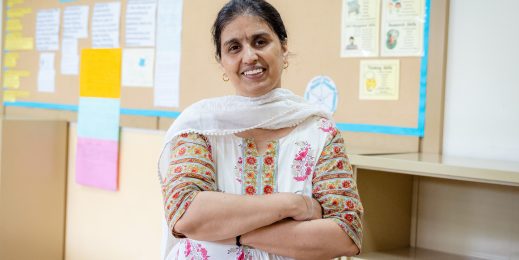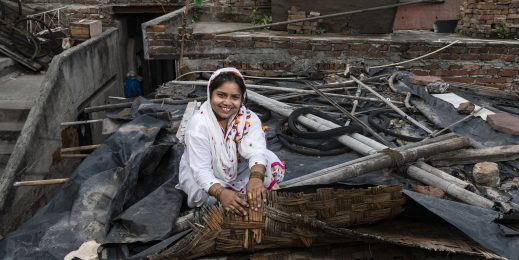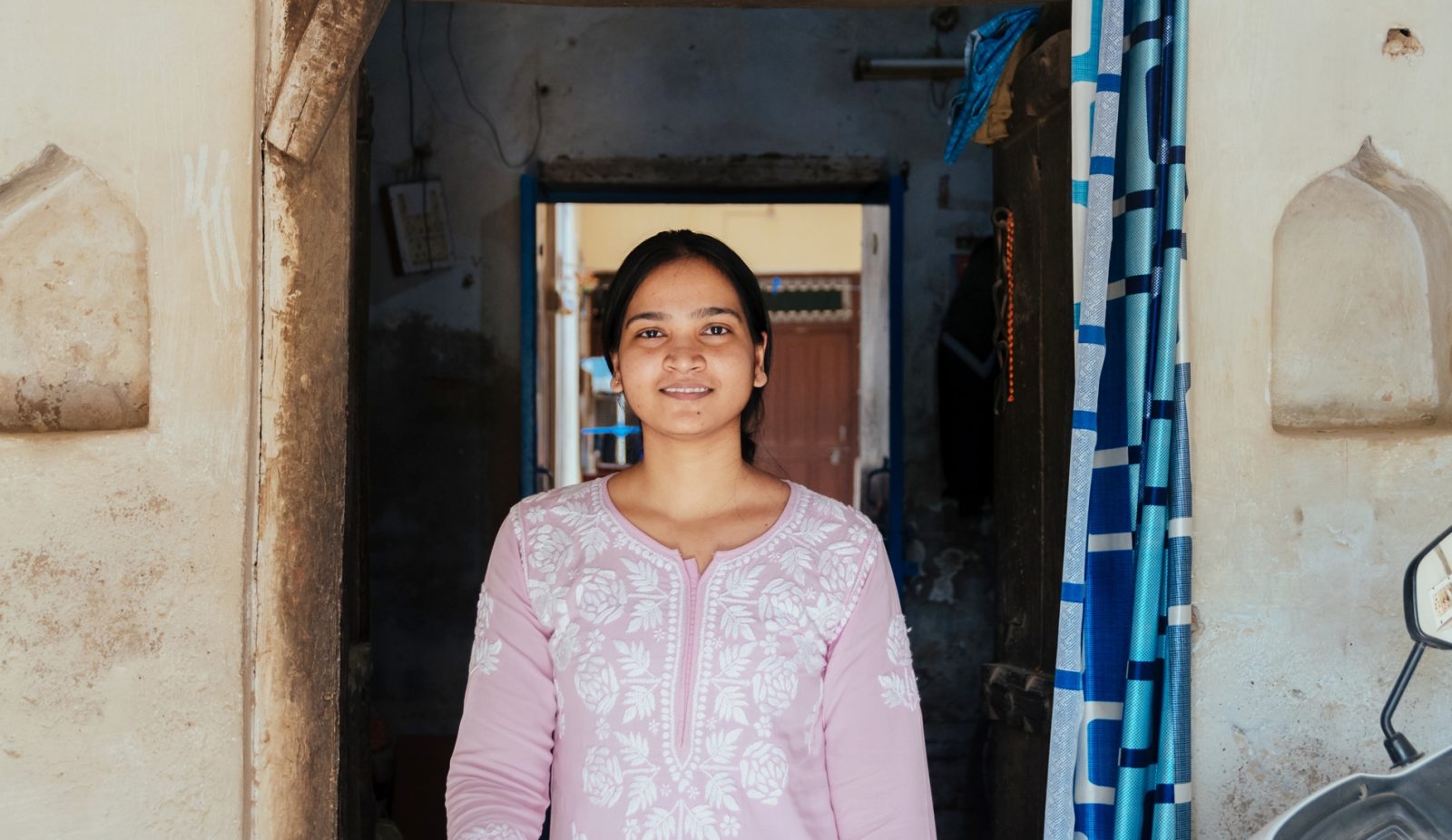
Empowering youth with disabilities to launch careers in the global finance sector
A skilling initiative in India aims to bridge the gaps in employment for persons with disabilities
Prachi Pandey joined the IT department of Allstate India last year. It’s rare for young women from a gritty industrial district like Unnao, in the northern Indian state of Uttar Pradesh, to gain a post-graduate degree and be hired by a big multinational corporation.
It’s her first job and her second life-changing event. The first was when she was 14 when she was diagnosed with spina bifida, a condition that causes weakness or paralysis in the legs. Her left foot lost sensation and wounds on her right foot required daily bandaging and multiple surgeries.
During the final year of her studies, doctors told her there was no cure.
“I wept all night after that,” she recalls. “But the next morning I decided that if I had to live with this condition, I would keep moving forward.”
Pandey was determined to build a career. She had good grades but understood that she needed to gain extra skills to overcome her natural shyness and perform well in job interviews.
She spent three months learning the basics of programming, and public speaking, in a course that’s tailored specifically for persons with disabilities.
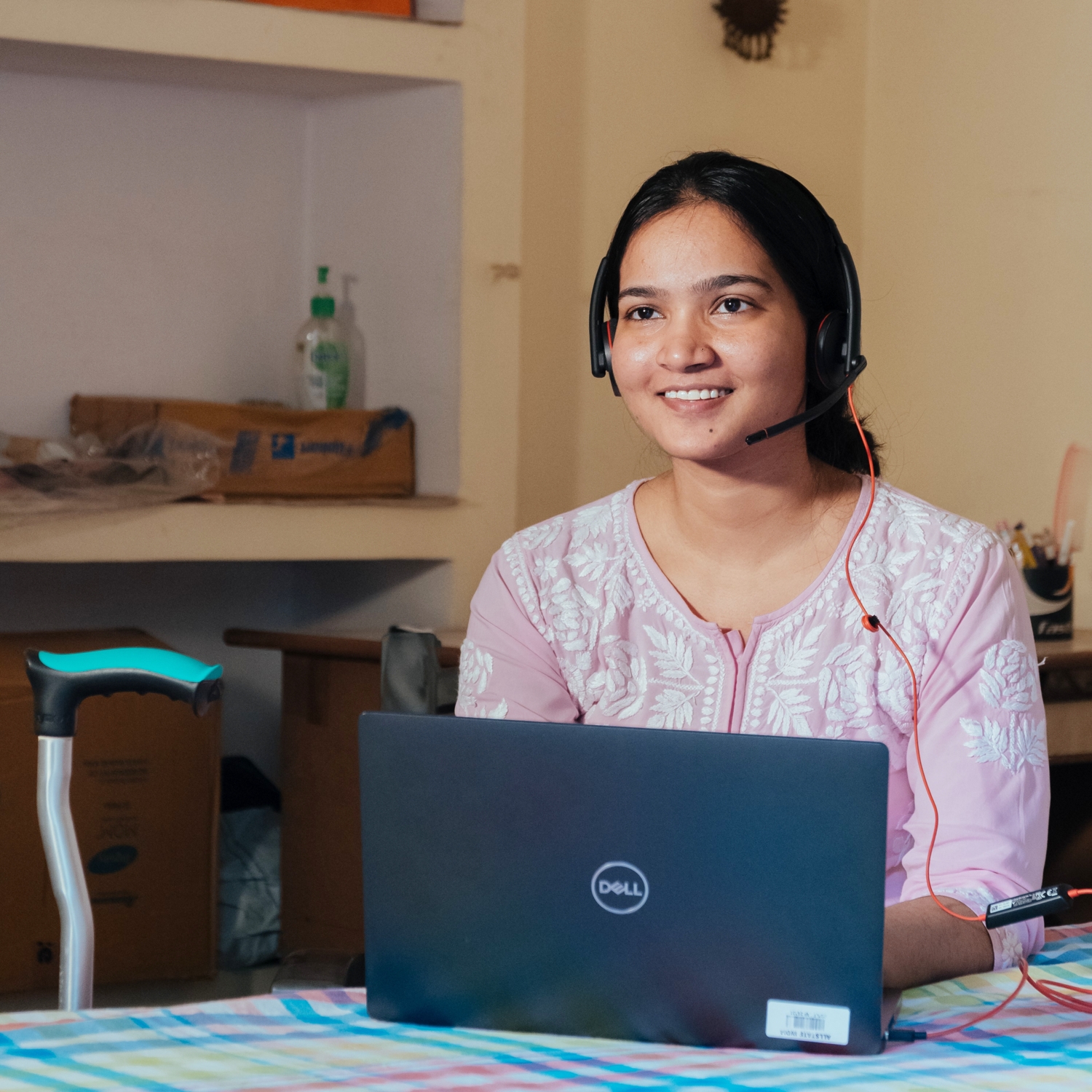
“I bugged the teachers with so many questions after the class,” she says, about the interactive online course she took in June with Bengaluru-based WinVinaya Foundation. “My English is so much better now, it used to be quite bad,” she says, beaming over a Teams video call from her home.
Pandey is one of many beneficiaries of SAMEIP, a skilling initiative which aims to create meaningful job opportunities for persons with disabilities in the banking, financial services, and insurance (BFSI) sector in India.
SAMEIP is a homonym of the Hindi word for “near”. It stands for SBI Foundation and Microsoft Employability Initiative for Persons with disabilities. State Bank of India (SBI) is the country’s largest banker and lender, and SBI Foundation is its corporate social responsibility arm.
The gaps in skilling and employment, which exist across sections in India, are particularly pronounced among people with disabilities. Many of them do not get to complete formal education.
SAMEIP enables and empowers non-profits to train people with disabilities with industry-relevant skills and helps break down barriers to hiring in the country’s fast-growing banking and financial services (BFSI) sector.
“Hiring persons with disabilities is often perceived as something employers do either to comply with the law or as a gesture of kindness and nobility. To contribute to the inclusive process, lot more efforts are required to be made,” says Dinesh Kumar Khara, chairman, SBI. “As leaders, it is imperative that we pool our efforts to create a level playing field and an inclusive environment to enable persons with disabilities to grow to their full potential. We at SBI are focused on doing that. Therefore, I am extremely proud that SBI Foundation and Microsoft India have come together to leverage their own strengths for creating opportunities of learning and growth for youth with disabilities and integrate them into the BFSI work force.”
According to the 2011 census more than 28 million Indians – around 2.21 percent of the population – live with a disability.
“That is bigger than the population of some other countries. Companies cannot afford to ignore them because persons with disabilities are also using their services,” points out Manjula Kalyanasundaram, who is managing director and CEO of the SBI Foundation. “Today the world is not just for-profit.”
Kalyanasundaram argues that there is a clear business case for hiring from this largely untapped talent pool and notes how SBI’s own culture of inclusion has helped it develop mobile apps with accessibility in mind.
“The economic impact of the pandemic, especially on vulnerable communities has been immense. One of the keys to a truly inclusive recovery are programs that provide easier access to digital skills,” says Jean-Philippe Courtois, executive vice president, and president of global sales, marketing and operations, Microsoft. “We are deeply committed to creating a digital skills ecosystem that enables everyone, including the 28 million persons with disabilities in India, to thrive in a digital economy. Ensuring the labor market is more inclusive is central to our mission of empowering every person and every organization on the planet to achieve more.”
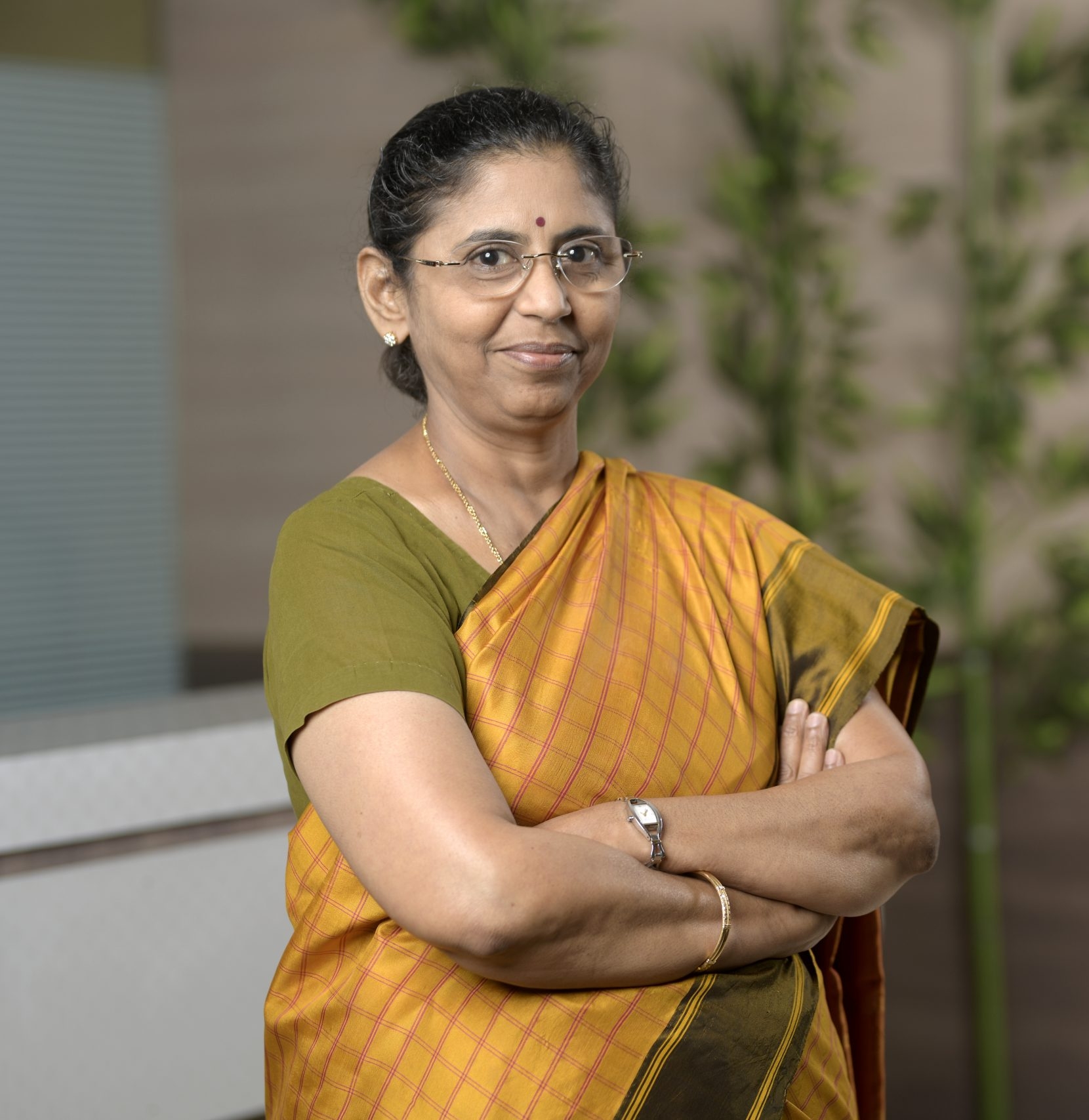
Under India’s constitution, the Rights of Persons with Disabilities Rules of 2017 mandate that four percent of public sector jobs be reserved for those with disabilities. However, the actual proportion remains at dismal levels.
The private sector is also lagging in this area. People with disabilities form less than 0.5 percent of staff in India’s top firms, a 2019 report by the Indian daily Business Standard had revealed.
“Most of the time, that talent pool gets limited to entry-level jobs like housekeeping, or, you know, front desk,” notes Manju Dhasmana, director of Microsoft Philanthropies in India. “Areas like microfinance and insurance are growing industries. They are looking for people to meet the demand, but they aren’t even talking about hiring persons with disabilities yet. Interestingly enough, there are many technical roles in the backend in BFSI where there is an opportunity to hire persons with disabilities.”
Given SBI’s influence in BFSI and being a strategic customer, Microsoft reached out the public sector banker to create a Corporate Social Responsibility (CSR) program under its global skilling initiative to both train persons with disabilities in skills relevant to the sector and provide them with meaningful employment opportunities.
By early 2020, SBI Foundation and Microsoft had designed a course and brought together five organizations to carry it out on the ground. Although mobilized last April amid the COVID-19 outbreak, the program kept its intentions ambitious: to skill 500 students in the first year.
“It takes a village,” as Manish Kumar, program manager at American India Foundation (AIF)— the main implementation partner—puts it. AIF roped in partners like Mahendra Skills, TeamLease Skills University, v-shesh, and WinVinaya, that specialize in training persons with disabilities.
While the training institutions operated out of five Indian big cities, delivering courses for free and over the internet meant that they could also cater to participants like Pandey, who come from smaller towns.
At the time of writing, nearly 500 persons with disabilities were enrolled in SAMEIP. They undergo training in fields like software development, business process automation, banking operations, among others and depending on their previous qualifications. Apart from industry-specific specializations, the non-profits also train them in soft skills, life skills, and employment readiness to prepare them for the corporate world.
Many of the trainers in SAMEIP themselves live with disabilities and can relate to a candidate’s needs and concerns. WinVinaya and v-shesh, for example, have video lessons in sign language, featuring trainers who are hard of hearing.
Confidence building is seen as key.
“In many cases, there is a comfort zone created by the family so that the person doesn’t get hurt either physically or by comments. But this makes them feel neglected when they venture out into the society,” observes Neena Gupta, a teacher who is blind and works with TeamLease Skills University. “We push the students to not hesitate to ask anyone for help, that it doesn’t mean they are weak or small.”
TeamLease Skills University, which specifically sought candidates from economically weaker families, counseled their caregivers and employers too, she adds.
Among the people Gupta has trained is Shabana. She lost both her arms in a childhood accident. She took part in online lessons from home using a keyboard placed on a short pedestal so she could type with her feet.
She graduated and last December she started working in back-end operations at Web Date Systems, a company that provides data management services for the telecom and banking industry. A desk similar to the one at home has been set up in her new workplace, where she processes credit card applications.
Shabana’s protective family, including her father who works on a construction site, nudged her to take up the role even though they knew most of her earnings would be spent in paying for a 1.5-hour commute between her home in the capital Delhi and her office in the satellite city of Gurgaon.
“He felt I would gain some knowledge,” says the arts graduate, for whom this is her first job.
India’s economy is slowly opening up after a year of pandemic uncertainty. And 77 participants from SAMEIP’s training courses have found employment with some of the biggest multinationals in the financial sector. The freshly recruited candidates, like G.B. Karthik, have gained a sense of accomplishment and agency.
A fall at the age of 12 affected Karthik’s mobility and speech, and stigma forced him to complete the rest of his education through distance learning. Regardless of having cleared various competitive exams, earning a degree in business administration, and being registered at the local employment office, the 31-year-old had been out of work for the last two years.
After training under SAMEIP, Karthik aced his interviews to join as a project operator at a leading multinational financial services company, where he has been assisting with keeping mortgage records since January. “To finally see me getting a job in a foreign company, my family jumped with joy,” he says.
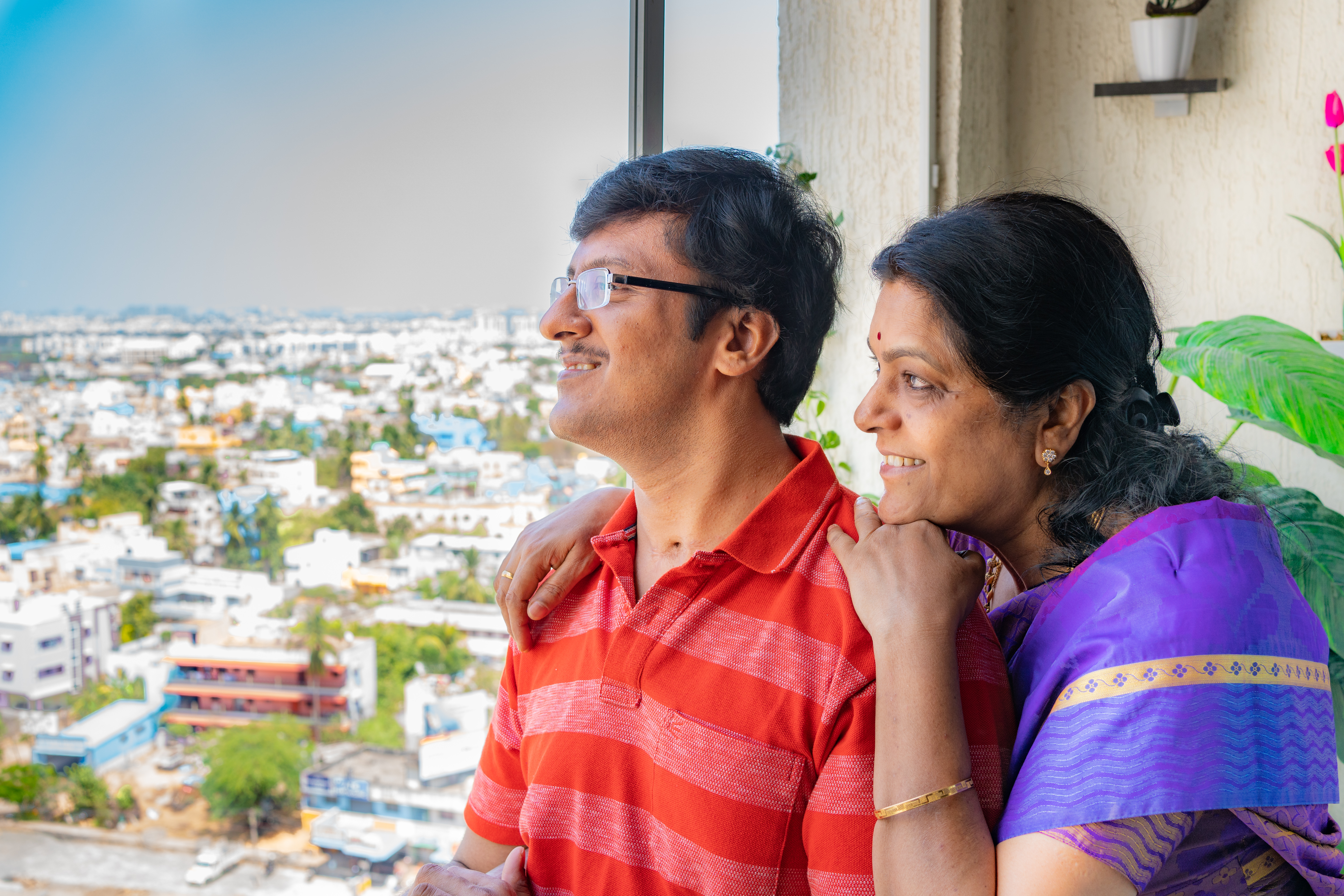
Glee is also palpable in the voice of his mother, Sumathi Balakrishnan, as the two speak from their home in the southern Indian city of Chennai. The journey from struggle to success has been a prolonged one, during which they faced financial and psychological strain.
“Earning his own money has done wonders for Karthik’s self-esteem,” she says.
For Sumathi, who had to let go of a 26-year career at SBI to stay back at home for caregiving, SAMEIP also marks a return to work and to her past connections with her employer. Inspired by the impact the initiative had on her son, she volunteered to conduct two-hour sessions on English speaking and job interviewing skills two or three times a week.
“I adored all the experience the bank gave me, but I had to take the difficult decision to resign. Being associated with this initiative now makes me feel like I’m giving back,” she says.
While skilling persons with disabilities is core to the initiative’s mission, an equally important aspect is to sensitize recruiters.
Chaithanya Kothapalli, co-founder of Yunikee, a Bengaluru-based firm that handles certain back-end IT operations for several banks, says his clients are willing to look beyond qualifications now. His company hired four SAMEIP trainees with hearing disabilities to work on credit verification for banks.
“Skills count more,” he says.
Besides, in his observation, employees with disabilities are just as focused and show lower attrition levels.
“The approach in recruitment had been to push for in-person interviews or ask people to do a fixed number of office hours. We are getting over that mindset now by hiring online and creating more opportunities,” says Jaya Virwani, ethics and diversity and inclusiveness leader at EY Global Delivery Services, a network of service delivery centers that provide high-quality services to EY.
EY GDS has hired seven people with locomotor disabilities who graduated from SAMEIP. According to Virwani, some of the candidates who applied managed to clear interviews even for roles that exceeded their experience level.
Kalaivani R, whose right hand has been non-functioning since birth, has joined EY as an assurance analyst in the accounting department, after attending classes with v-shesh, one of the training partners involved in SAMEIP.
“I had a bookish understanding of banking before, but I came to know about practical things at v-shesh that are useful in my working life,” says the commerce graduate, who logged into the classes remotely from Mayiladuthurai—a southern Indian town known less for banks and more for its temples.
“My motto is wherever I go, I want to rock.” Her new job could bring her to a big city soon, but the 21-year-old has even bigger plans. “I’d like to go abroad.”
SBI Foundation and Microsoft hope to accelerate these shifts by bringing in more players from the BFSI sector to either join the initiative or replicate it within their organizations. Next on the agenda is an AI-enabled job marketplace where aspiring employees can meet potential employers.
Ranjita Ganesan is a journalist and researcher based in Mumbai.







